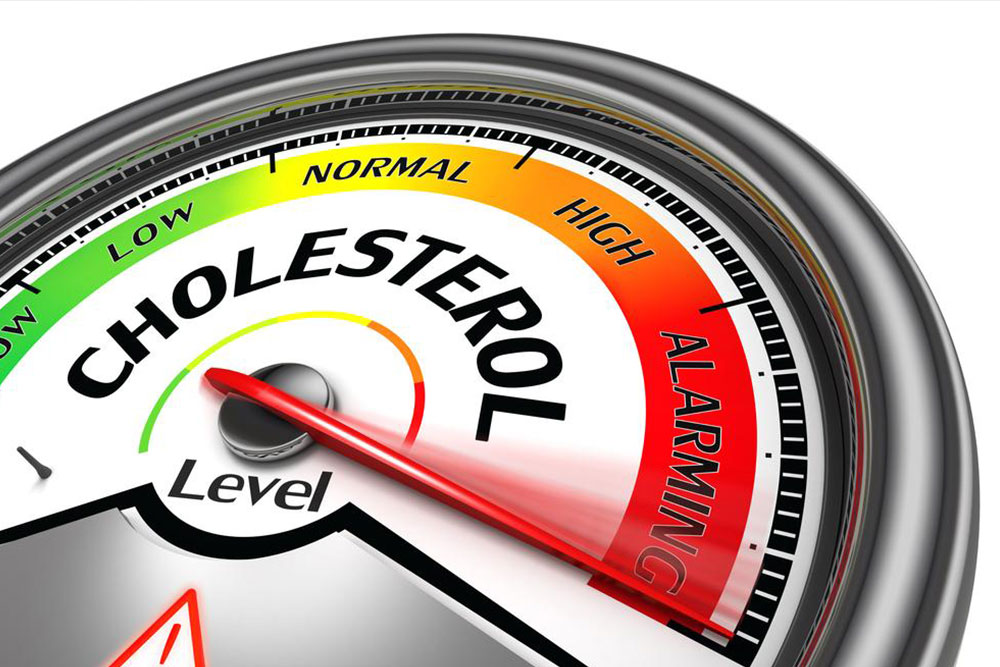Comprehensive Guide to Monitoring and Managing Your Cholesterol for Better Heart Health
This detailed guide emphasizes the importance of monitoring and managing cholesterol levels to promote cardiovascular health. It covers the basics of cholesterol, how to assess and interpret test results, influencing factors, lifestyle tips for maintaining healthy levels, and the importance of regular check-ups. Adopting a proactive approach can prevent future heart-related complications and support a healthier life. Key strategies include dietary modifications, regular exercise, quitting smoking, and routine testing to ensure your cholesterol stays within a safe range, fostering overall well-being.

Comprehensive Guide to Monitoring and Managing Your Cholesterol for Better Heart Health
When it comes to maintaining overall health, cholesterol often takes center stage as a critical factor. Many people misunderstand what cholesterol levels mean and underestimate their importance. While high cholesterol can significantly increase the risk of heart disease, stroke, and other cardiovascular problems, it's essential to recognize that managing cholesterol is both achievable and necessary for long-term well-being. A proactive approach involving regular health assessments, a balanced diet, physical activity, and lifestyle modifications can effectively keep cholesterol levels within healthy ranges. Understanding what cholesterol is, how it impacts your body, and the best strategies for monitoring and controlling it forms the foundation of heart health management. In this comprehensive guide, we delve into the vital steps to monitor your cholesterol, interpret the results accurately, and adopt lasting habits that promote cardiovascular wellness.
Understanding Cholesterol: The Basics and Why It Matters
Cholesterol is a waxy, fat-like substance that plays an indispensable role in the human body. It is involved in producing hormones such as estrogen and testosterone, building cell membranes, and aiding in the creation of bile acids necessary for fat digestion. Your body naturally synthesizes cholesterol in the liver, but it also comes from dietary sources, notably animal products like meat, eggs, and dairy. While some cholesterol is vital for health, elevated levels can be problematic. High cholesterol can lead to the buildup of fatty deposits inside arteries, known as plaques, which restrict blood flow and increase the likelihood of heart attacks and strokes. Therefore, maintaining balanced levels of cholesterol is crucial for cardiovascular health.
Why Regular Cholesterol Testing Is Critical
Cholesterol levels are not static; they can fluctuate based on age, lifestyle, genetics, and overall health. For adults over the age of 20, it is recommended to undergo a lipid profile test at least once every five years. This simple blood test provides essential insights into your lipid profile, including total cholesterol, LDL (low-density lipoprotein, often called "bad" cholesterol), HDL (high-density lipoprotein, known as "good" cholesterol), and triglycerides. Those with a family history of heart disease, smokers, individuals with obesity, or people with existing health conditions should consider more frequent testing to monitor their levels closely. Early detection allows timely intervention, whether through lifestyle changes or medication, to prevent complications.
How to Prepare for and Understand Your Cholesterol Test
Preparing for a cholesterol test involves fasting for at least 9 to 12 hours before the blood draw. Fasting helps ensure accurate measurements of triglycerides and other lipids. When interpreting your results, it is essential to understand the key components:
Overall Cholesterol: The combined amount of LDL, HDL, and triglycerides.
LDL Cholesterol: Often termed "bad" cholesterol because it contributes to plaque buildup.
HDL Cholesterol: Known as "good" cholesterol, as it helps remove excess cholesterol from arteries.
Triglycerides: A type of fat linked with atherosclerosis and heart disease risk when elevated.
Elevated LDL and triglycerides, coupled with low HDL levels, indicate a heightened risk for cardiovascular problems. Your healthcare provider can interpret your specific results and suggest personalized strategies for improvement.
Factors That Affect Cholesterol Levels
Cholesterol levels are influenced by a combination of genetic, lifestyle, and dietary factors. Consuming diets high in saturated fats, trans fats, and cholesterol-rich foods can elevate LDL levels. Being overweight or obese further exacerbates the problem by promoting inefficient lipid metabolism. Physical inactivity is another critical factor; a sedentary lifestyle correlates with higher LDL and lower HDL levels. Conversely, regular physical activity, such as brisk walking, swimming, or cycling, can elevate HDL and reduce LDL. Additionally, smoking and excessive alcohol consumption negatively impact cholesterol profiles. Understanding these factors allows you to modify your habits for better heart health.
Strategies for Maintaining Healthy Cholesterol Levels
Adopting a heart-healthy lifestyle is the most effective and sustainable way to control cholesterol. Focus on dietary modifications by including more fruits, vegetables, whole grains, lean proteins, and healthy fats like omega-3 fatty acids found in fatty fish and walnuts. Limiting intake of saturated fats—found in red meat, full-fat dairy, and processed foods—and avoiding trans fats present in many fried and baked goods is essential. Weight management through balanced eating and regular exercise can significantly improve lipid profiles. Aim for at least 150 minutes of moderate-intensity aerobic activity weekly, alongside strength training exercises. Quitting smoking and moderating alcohol intake further enhance cardiovascular health. In some cases, medication prescribed by your healthcare provider might be necessary, especially if lifestyle changes alone do not suffice.
Long-term Monitoring and Maintaining Heart Health
Consistent monitoring of cholesterol levels allows for early identification of adverse trends and timely adjustments to your health plan. Regular health check-ups, coupled with ongoing lifestyle improvements, play a critical role in long-term heart health. Additionally, managing other risk factors such as blood pressure, blood sugar, and stress levels collectively contribute to cardiovascular wellness. Educating yourself about the importance of cholesterol management and staying committed to healthy habits can significantly reduce your risk of heart disease, stroke, and related complications. Remember, controlling cholesterol isn’t a one-time event but an ongoing process that requires dedication and awareness. Your proactive efforts today translate into a healthier, longer life tomorrow.





